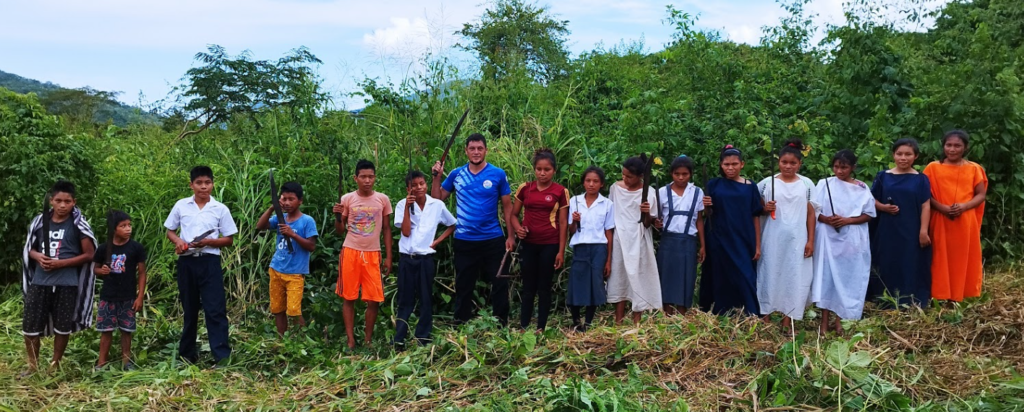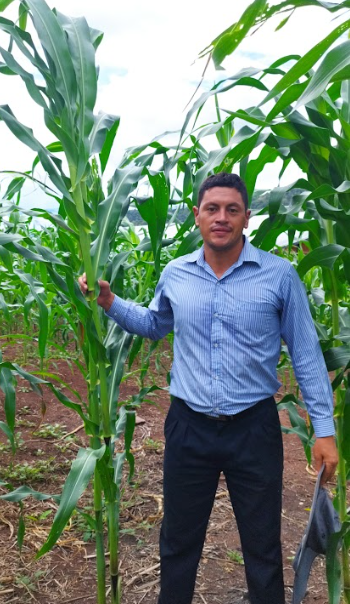In an Asháninka indigenous community in Peru, Nolberto Castañeda plants the seeds of change in his reality
Paulo Beraldo
For teacher Nolberto Castañeda, there is no doubt that the school should be the center of development for a community. It should support the children and young people who study there, help improve their eating habits, and help them dream of a better future. “The school should initiate this development process to support its community,” he says.
That is why he works every day at the ‘Alejandro Antenor Gómez’ educational institution, located in the native community Unión Puerto Asháninka, Pangoa District, Satipo Province, in Junín, Peru. A school with 73 students from neighboring Asháninka indigenous communities. Nolberto shares his experience of implementing food and nutrition education (FNE) in his school, where the school garden has become a hands-on learning environment, with productive and pedagogical approaches.

“With school gardens, we are more likely to obtain and consume vegetables during school breakfast and lunch,” he comments. And the garden’s impact is not limited to nutrition. It also positively influences eating habits from an early age, showing correlations with improvements in academic performance in subjects such as education for work, science and technology, mathematics, and communication.
Actions
Nolberto says that when the garden was implemented in the school, several activities were carried out, including the management and cultivation of vegetable crops with the application of organic matter and training for students, who have the opportunity to develop skills in fieldwork along with the teacher. Currently, the garden is 500m², and there they produce tomatoes, onions, cucumbers, radishes, cassava, aromatic herbs, among others. “Everything is consumed by the students to improve their diet and nutrition.”
For Nolberto, this is a way for students to acquire skills for growing plants for human consumption within the framework of a dietary plan for the conservation of health, the environment, and even economic activities.

Training for teachers
Nolberto was one of the outstanding participants in the course ‘Educating to achieve healthy and sustainable school environments,’ supported by the Brazil-FAO International Cooperation and developed by the Government of Peru. He presented a ‘before and after’ of the work he has done at his school in the Asháninka indigenous community, in Junín.
There were improvements in the storage room, school kitchen, in the school garden, in the chicken coop, among others. He explained that after the course, training sessions on hand washing and personal hygiene were held, and they worked with mothers who prepare the food on good handling practices and healthy eating.
“Selecting the teachers who are part of the School Feeding Council of the National School Feeding Program-Qali Warma was a great success. We are the ones directly involved with school feeding in educational institutions,” he evaluated. Nolberto said that as a teacher, his goals are to promote training for students and parents in FNE and to increasingly link the school garden to pedagogical practice.
“Thanks to the course, I replicate what I have learned, transmitting my knowledge to students both in theory and in the classroom and in outdoor practices in the garden. I want this topic to spread more. That is why I make students apply the knowledge in their homes with their families, where each student must have a garden. And the student who obtains the best vegetables receives a higher score as a form of reward.”






